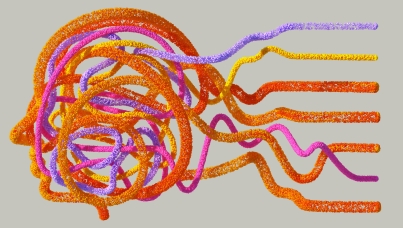85% of British adults say they have heard of the Magna Carta
 More than eight in ten British adults, 85%, some 38 million people, say they have heard of the Magna Carta, putting it ahead of the King James Bible, 70%, and such relatively little known ancient books and manuscripts as the Codex Sinaiticus, 13%, and Textus Roffensis (5%). The Magna Carta (in modern English “Great Charter”) was sealed, not signed, when King John bowed to the Barons’ demands at Runnymede, Surrey, in 1215, nearly 800 years ago.
Slightly fewer have heard of Magna Carta than the US Declaration of Independence of 1775 (90%) which includes principles derived directly from Magna Carta (See Chart 1).
Prime Minister David Cameron was embarrassed to admit he didn’t know what the English translation of Magna Carta was, nor when it was ‘signed’, when asked on American TV in September, (The Letterman Show) but he did know that Runnymede was the site. Now we know that he isn’t entirely alone among the British people, but one person in five, 21%, nearly ten million people, did know when, where and by whom it was agreed (not ‘signed’ as Letterman asked), according to a Ipsos/King’s College London poll of 1,005 nationally representative British adults interviewed by telephone 20-24 October 2012. (See Chart 2)
More than eight in ten British adults, 85%, some 38 million people, say they have heard of the Magna Carta, putting it ahead of the King James Bible, 70%, and such relatively little known ancient books and manuscripts as the Codex Sinaiticus, 13%, and Textus Roffensis (5%). The Magna Carta (in modern English “Great Charter”) was sealed, not signed, when King John bowed to the Barons’ demands at Runnymede, Surrey, in 1215, nearly 800 years ago.
Slightly fewer have heard of Magna Carta than the US Declaration of Independence of 1775 (90%) which includes principles derived directly from Magna Carta (See Chart 1).
Prime Minister David Cameron was embarrassed to admit he didn’t know what the English translation of Magna Carta was, nor when it was ‘signed’, when asked on American TV in September, (The Letterman Show) but he did know that Runnymede was the site. Now we know that he isn’t entirely alone among the British people, but one person in five, 21%, nearly ten million people, did know when, where and by whom it was agreed (not ‘signed’ as Letterman asked), according to a Ipsos/King’s College London poll of 1,005 nationally representative British adults interviewed by telephone 20-24 October 2012. (See Chart 2)
When probed in more detail, the survey showed that of those who had heard of the Magna Carta, six in ten, nearly 23 million, knew that Magna Carta guaranteed the Rule of Law, nearly half Trial by Jury, and around a third Democracy and Basic Human Rights, three in ten freedom from arbitrary arrest. Some guessed wrong, as the Magna Carta didn’t promise freedom of speech although 36% thought it did, nor the right to vote (21% thought wrong) or equal rights for women (9%). (See Chart 3)
Although seven in ten younger people, 18-34 (six in ten of those under 25), had heard of Magna Carta, 87% of 35-54s had, as had 95% of those 55 and over. Awareness was highest in the Midlands, lowest in Scotland. The age gap must say something about the neglect of teaching about the principles of Magna Carta in schools (perhaps even at Eton and Oxford?).One in eleven (13%) of those who have heard of Magna Carta got the date it was agreed by King John spot on, 1215, and another 13% knew it was in the 13th Century/1200s. A third said at other times and four in ten admitted they didn’t know. The biggest age disparity was on where it was agreed, as only 8% of 18-24s knew Runnymede, while 42% of the 65 and over age group knew. The one thing where the youngsters were ahead of their elders was knowing that the Magna Carta guaranteed the Rule of Law (72% v. 60%).
Sir Robert Worcester, founder of MORI, is Chairman, Magna Carta 800th Anniversary Committee and Visiting Professor, King’s College London.



